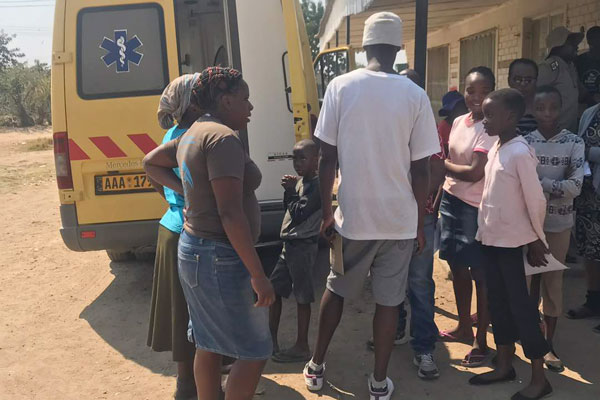
Tinashe Mapako is a youthful teacher at a Gweru high school and was until recently a happily married man.
By Brenna Matendere

Mapako and his wife Chenai were preparing to celebrate their seventh marriage anniversary when tragedy struck early this month.
Chenai died on August 8 a few days after she was admitted at a local clinic. She was one of the first victims of a typhoid outbreak gripping the Midlands capital.
“When I learnt of the death of my wife I was shocked and at some point I could not believe it,” said a grieving Mapako.
“It was so sudden and being young I could not believe that such a thing could happen to me. Each time I look at our kids, I cannot stop shedding tears.”
However, Mapako is not alone in grieving a close relative who succumbed to the water-borne disease since the beginning of the month in Gweru.
According to Midlands provincial medical director Simon Nyadundu, eight people have died of typhoid since the onset of the outbreak.
- Chamisa under fire over US$120K donation
- Mavhunga puts DeMbare into Chibuku quarterfinals
- Pension funds bet on Cabora Bassa oilfields
- Councils defy govt fire tender directive
Keep Reading
At least 1 572 cases of typhoid have been confirmed in the high-density suburb of Mkoba.
Typhoid is an acute illness caused by Salmonella bacteria. It can also be caused by Salmonella paratyphi, a related bacterium that usually causes a less severe illness.
The bacteria easily spreads through contaminated water and food. Along with high fever, typhoid can cause abdominal pains, headache and loss of appetite.
Boreholes in Mkoba sections such as villages 15, 18, 19 and 20 have been identified as the source of the outbreak.
Some of the residents who were recently treated of the disease and families of the dead blamed both the government and council for the outbreak.
“To start with, government health workers refused to allow my wife to be transferred from their centre to a private hospital saying that would spread the typhoid,” Mapako said.
“However, that centre did not have the medication. I then went to buy the medication myself, but when I came back, she had already died.
“This means that the health ministry is to blame.”
Annastancia Mabiko, who lost a niece to typhoid, said they suspected she died because of neglect by nurses at Gweru provincial hospital.
“While we cannot say whether that contributed to the death since the cause was said to be typhoid, we believe had the nurses been good to her, it would have been a different story altogether,” she said.
Patience Chitsunge of Mkoba 18, who lost her mother, said they blamed council for her death because their tap water was found to be contaminated with sewage.
Town clerk Elizabeth Gwatipedza told vendors recently that the city’s water infrastructure was now too old and there were risks of sewer contamination through seepage.
Gweru Residents’ and Ratepayers’ Association chairperson Cornelia Selipiwe urged council to assist the bereaved.
“While we are not saying Gweru water is unsafe despite the concerns we have heard that it is so by some residents, going forward I think the local authority should give funeral assistance to families of all those who die of typhoid,” he said.
“That will create a better relationship between the council and the residents.”
Meanwhile, Nyadundu dismissed claims that government did not have enough drugs to treat typhoid patients. He said private hospitals were also being allowed to treat sick people. Nyadundu said containing the outbreak was proving to be difficult because of erratic water supplies.
Council’s health director Samson Lincoln Sekenhamo said other than setting up treatment centres, they had also undertaken initiatives to create awareness about the disease.
Ten years ago, 10 people died of cholera in Gweru, which was blamed on poor sanitation.










